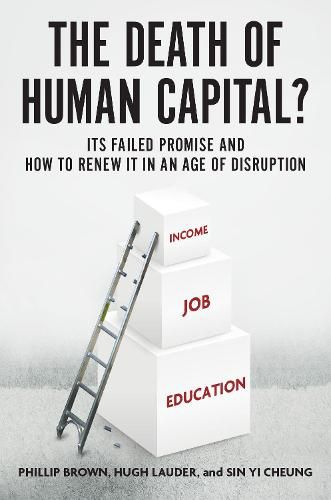Readings Newsletter
Become a Readings Member to make your shopping experience even easier.
Sign in or sign up for free!
You’re not far away from qualifying for FREE standard shipping within Australia
You’ve qualified for FREE standard shipping within Australia
The cart is loading…






Human capital theory, or the notion that there is a direct relationship between educational investment and individual and national prosperity, has dominated public policy on education and labor for the past fifty years. In The Death of Human Capital?, Phillip Brown, Hugh Lauder, and Sin Yi Cheung argue that the human capital story is one of false promise: investing in learning isn’t the road to higher earnings and national prosperity. Rather than abandoning human capital theory, however, the authors redefine human capital in an age of smart machines. They present a new human capital theory that rejects the view that automation and AI will result in the end of waged work, but see the fundamental problem as a lack of quality jobs offering interesting, worthwhile, and rewarding opportunities. A controversial challenge to the reigning ideology, The Death of Human Capital? connects with a growing sense that capitalism is in crisis, felt by students and the wider workforce, shows what’s at stake in the new human capital while offering hope for the future.
$9.00 standard shipping within Australia
FREE standard shipping within Australia for orders over $100.00
Express & International shipping calculated at checkout
Human capital theory, or the notion that there is a direct relationship between educational investment and individual and national prosperity, has dominated public policy on education and labor for the past fifty years. In The Death of Human Capital?, Phillip Brown, Hugh Lauder, and Sin Yi Cheung argue that the human capital story is one of false promise: investing in learning isn’t the road to higher earnings and national prosperity. Rather than abandoning human capital theory, however, the authors redefine human capital in an age of smart machines. They present a new human capital theory that rejects the view that automation and AI will result in the end of waged work, but see the fundamental problem as a lack of quality jobs offering interesting, worthwhile, and rewarding opportunities. A controversial challenge to the reigning ideology, The Death of Human Capital? connects with a growing sense that capitalism is in crisis, felt by students and the wider workforce, shows what’s at stake in the new human capital while offering hope for the future.